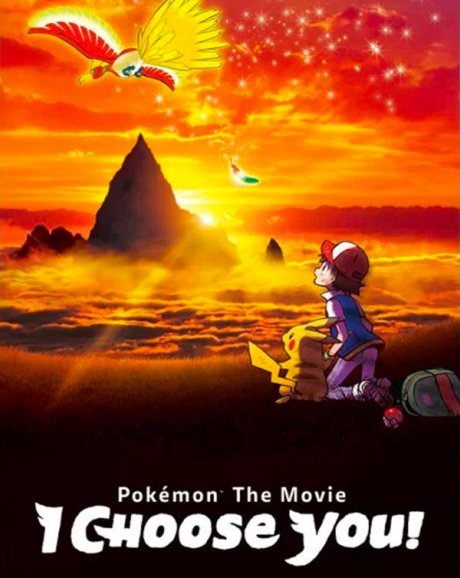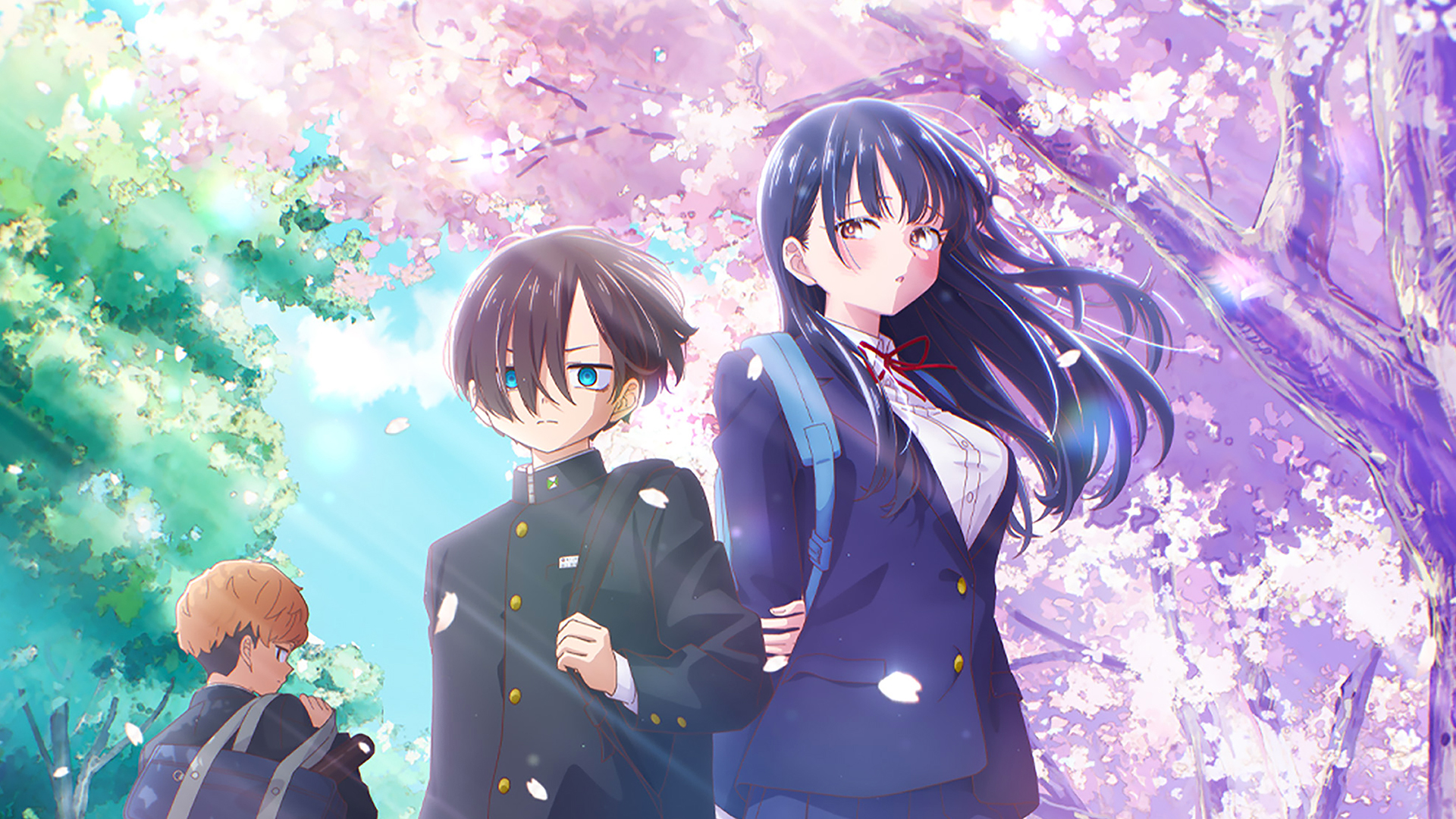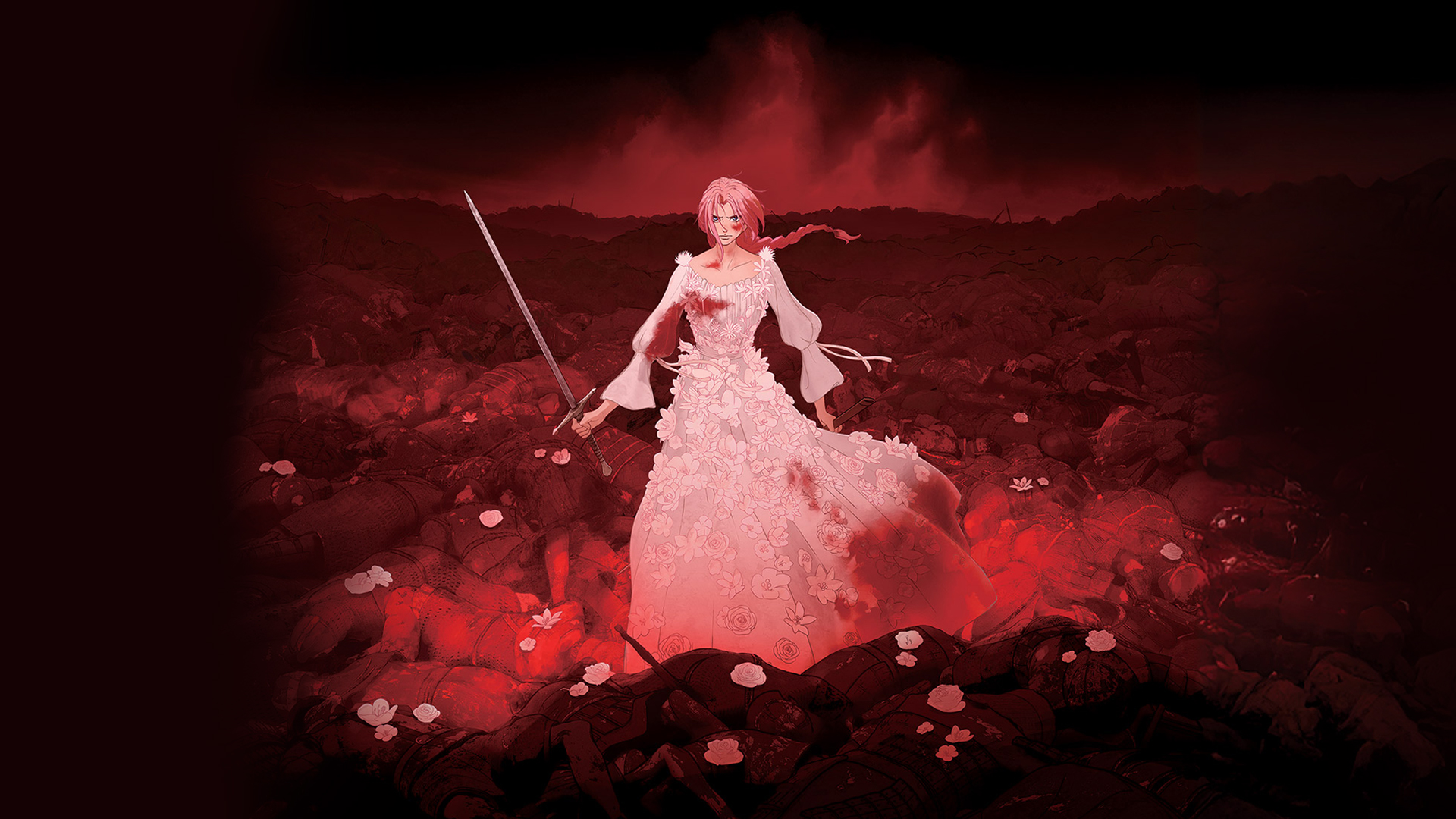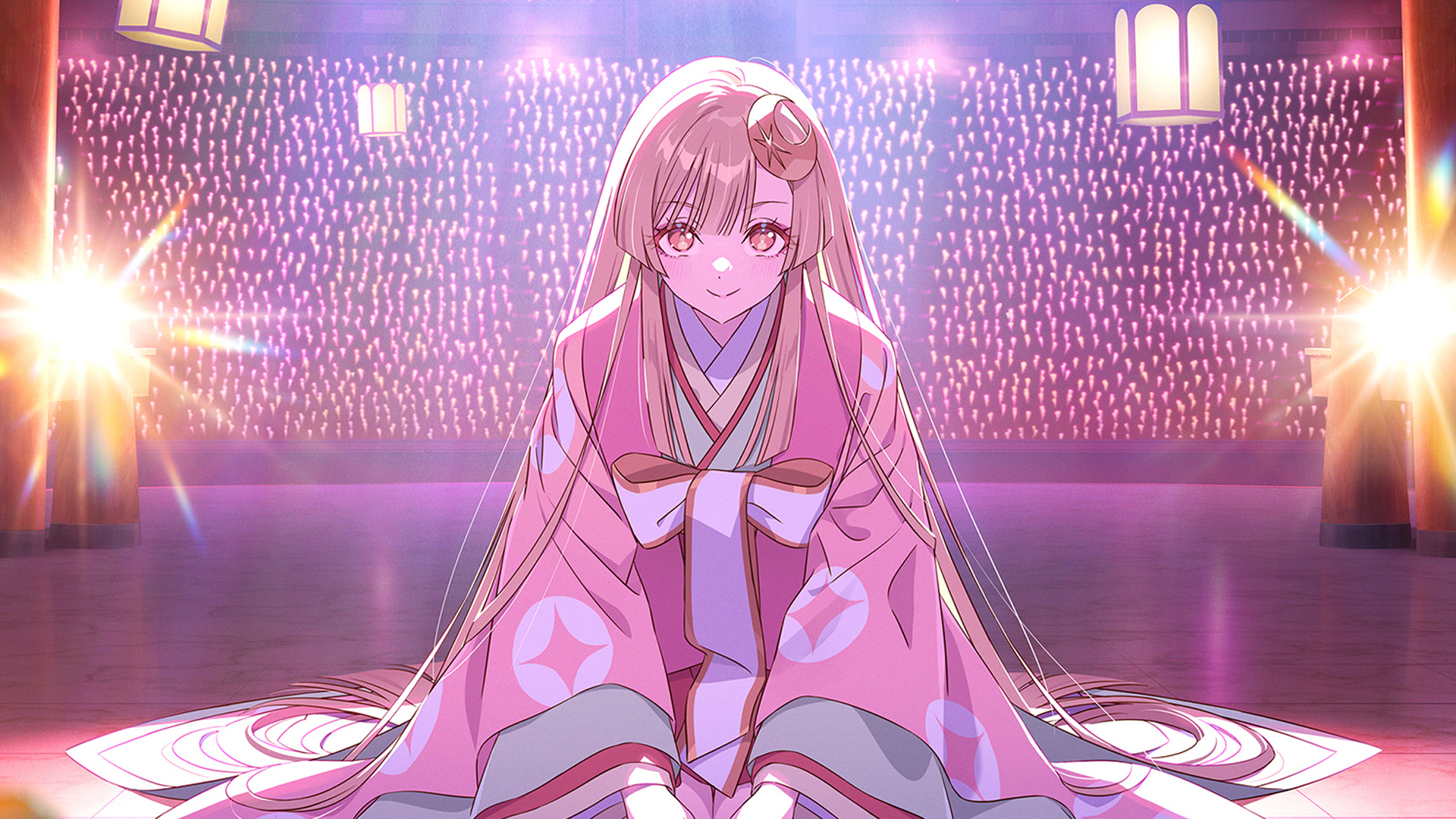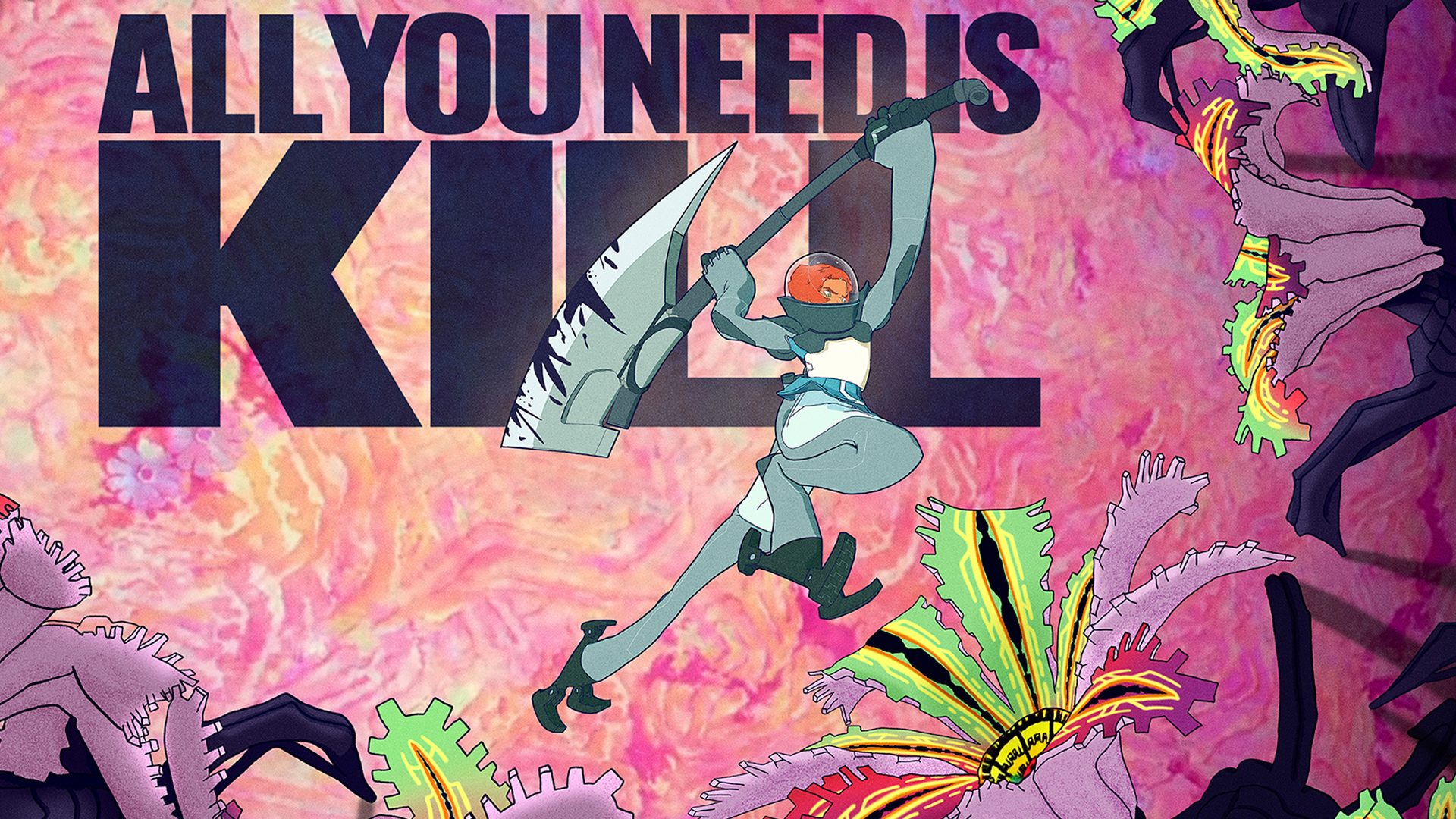Purrr....
- Visuals
- Look at all the Pokémon!
Hisss!
- Underutilized companions
- Professor Pointless Exposition
- Team Rocket doesn’t do anything
Director
Kunihiko YuyamaGenre
Adventure, Animation, Family, FantasyRated
PGTheatrical Release Date (NA)
Nov 5, 2017Film Length
1h 35minThe Pokémon anime series is the latest video entertainment franchise to reach a significant milestone, with 2017 marking twenty years of Poké-goodness (nineteen in the U.S.), and to commemorate this event, a new movie was released to the delight of audiences the world over.
However, instead of developing an all-new adventure for the coincidental twentieth film, the creators went back to where it all started. Pokémon the Movie: I Choose You! is a retelling of Ash Ketchum’s beginning and a celebration of all things Pokémon.
Those who see the word “retelling” and shudder at the thought that this might be one of those dreaded compilation movies that Japan often makes when bringing an animated television series to the big screen need not worry. While it is true that Pokémon the Movie: I Choose You! does lift entire sequences from the original show and add them almost verbatim into the movie, it’s okay because they were great scenes twenty years ago and they’re still great now.
That said, it goes beyond the standard highlight reel of events that runs for an hour-and-a-half. Instead, it uses them as a foundation to tell a good story that’s reinforced by universal themes.
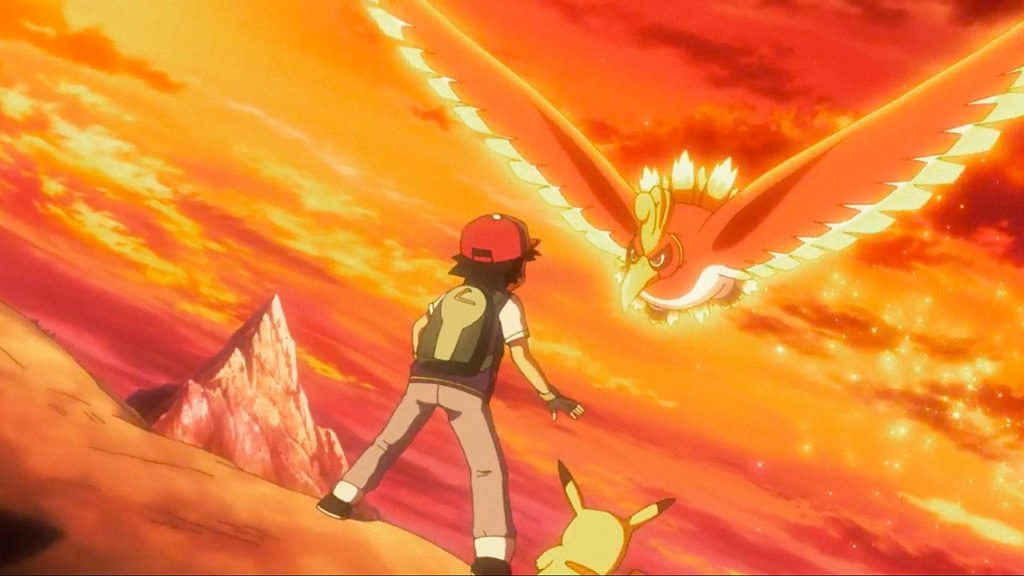
The story itself is simple. Ash Ketchum wants to be the world’s greatest Pokémon master, which involves catching and training Pokémon and then using them to battle against other trainers and Pokémon until there’s nobody left to fight.
However, while this is what gets him out of bed, the movie focuses on him getting caught up in the prophecy of the Rainbow Hero, who is destined to seek out and battle the rarest and most legendary of Pokémon, Ho’oh, and the type of person who will do this is where the story’s themes come into play.

Take the theme of true friendship, for instance. In the beginning of the movie, after ten-year-old Ash Ketchum arrives late to Pokémon expert Professor Oak’s lab, the only Pokémon left for him is the rude and ill-mannered Pikachu. The professor explains that this particular type of electrical creature hates being touched by humans, so of course, Ash ignores the advice, picks up Pikachu, and gets electrocuted. Fortunately, he is undeterred by Pikachu’s stubbornness and declares his hope that they can become friends, and such a big-hearted approach is seen throughout the film.
Later on, Butterfree, the first Pokémon Ash ever caught in the wild, has the opportunity to migrate elsewhere with a potential mate and a swarm of other Butterfree. However, the bug-type Pokémon is loyal to his trainer and is willing to give up that life for him. Ash, of course, does not want to part with him either but gives his blessing anyway because the happiness of his friend is more important than his own desires. And such wants are not exclusive to humans. After audiences are introduced to Sorrel, a boy studying to become a Pokémon professor, we learn his backstory, which involves a beloved family-owned Pokémon saving his life at great cost to itself. As I said, even though the theme of friendship is pretty simplistic, it’s still a powerful one that is constantly revisited and used to great effect.
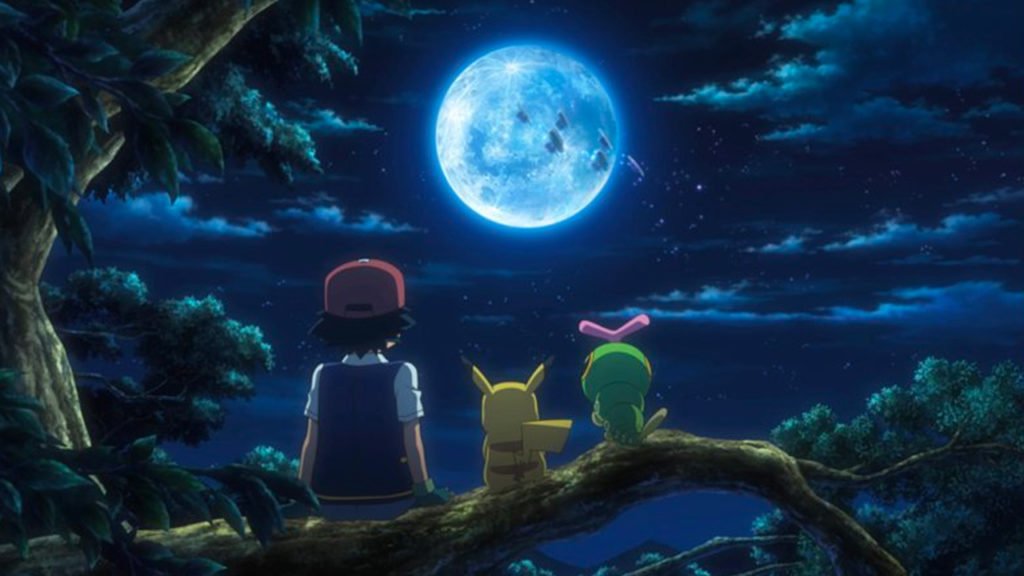
Speaking of Sorrel, he is one of a handful of new characters that inhabit the movie. Original companions Misty and Brock, as well as rival Gary Oak, are nowhere to be found during the story, which might disappoint some fans. However, their absence is not necessarily a bad thing in theory. After all, we know their stories, and a new cast allows for fresh possibilities. Sadly, the movie doesn’t capitalize on this as well as it should. New girl Verity initially competes with Ash after a legendary Pokémon sighting in the nearby forest–a sequence that has all the markings of her becoming a friendly rival. Unfortunately, this hot-bloodedness doesn’t last too long, and she, instead, morphs into a passive girl who doesn’t like talking about her past and is merely along for the ride, which is a shame.
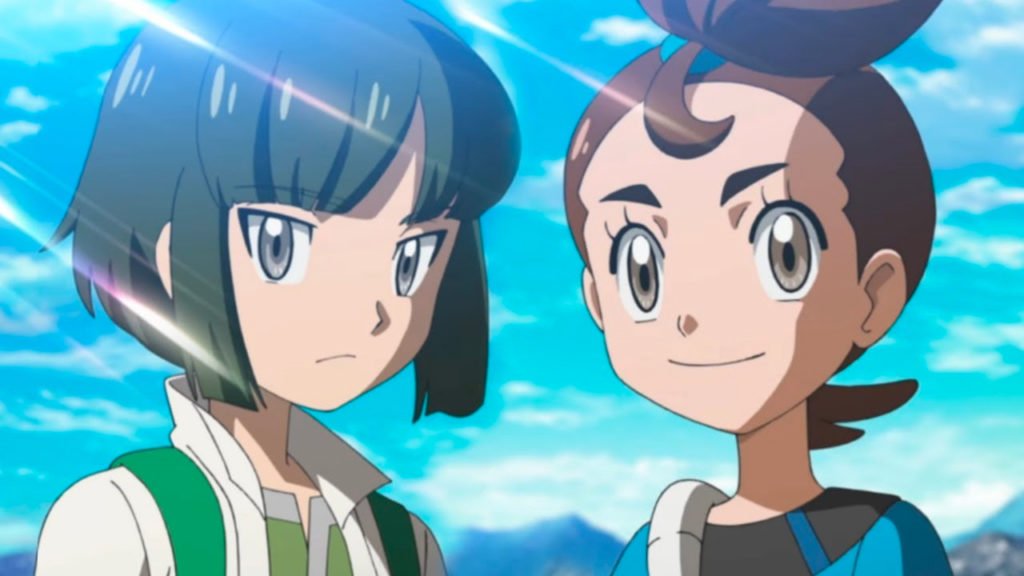
The aforementioned Sorrel fares a little better. As a student who hopes to be a professor one day, his intelligence and studious nature at least makes him suitable for providing helpful exposition during Ash’s journey. However, this role is unceremoniously taken over towards the end of the movie by a more learnéd man who appears out of nowhere and, quite frankly, won’t shut up when he does. The older man basically becomes a play-by-play announcer who narrates the climactic events as they’re happening, instead of letting the action speak for itself. Admittedly, this is so that children can understand exactly what’s going on, but it’s annoying that the writers felt the need to bring in a new character just for that.
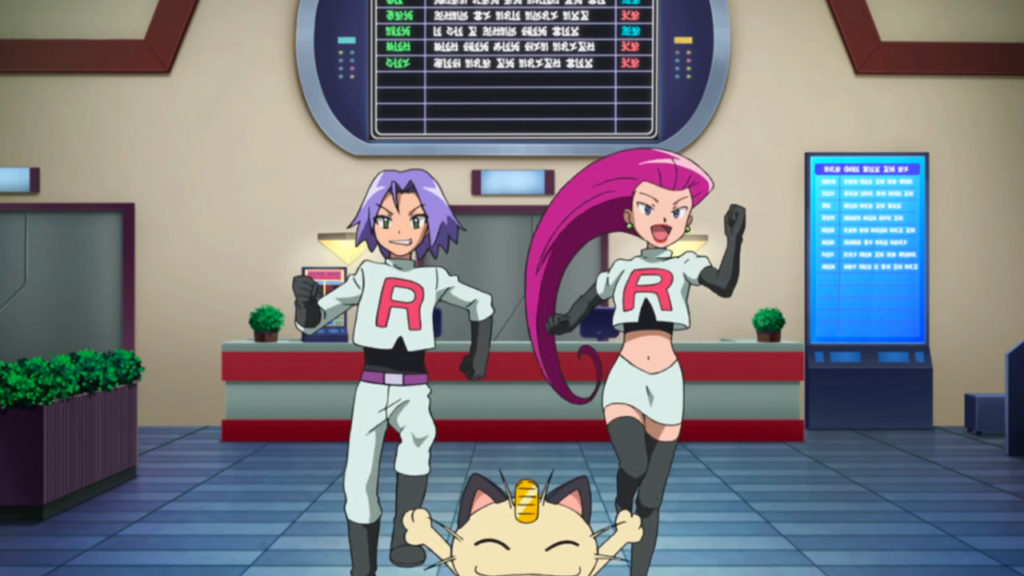
Heck, even returning characters get slighted. Long-time antagonists Jessie, James, and Meowth are introduced fairly early on in the story, but they don’t have any direct interaction with Ash and his group. Instead, they serve purely as comic relief, getting blasted off again in their many failed attempts to capture Pokémon. Considering that their main role in the original series was to try to kidnap Pikachu, it’s a little puzzling that they don’t do the same here. On the one hand, this is consistent with their role in previous movies, but on the other hand, why even bother to include them so prominently in the story if they don’t do anything? Let them make a brief cameo appearance, and then devote the comedic scenes to developing Verity’s and Sorrel’s characters further.

Thankfully, the one new character that shows promise is Cross, Ash’s rival, who appears midway through the film, espousing a “might makes right” philosophy. He exists in direct contrast to Ash’s “power of friendship” beliefs, and when Cross defeats him rather convincingly in a match, Ash is shaken to the core for quite possibly the first time in his life. In Ash’s journey to be the greatest Pokémon master ever, as well as the Rainbow Hero, he falters in a way I’ve never seen before, isolating himself physically and lashing out at his friends. Visually, this descent into negativity is signaled in a shot where Ash is walking with his companions at sunset and he’s suddenly enveloped by the shadow of nearby trees the moment he starts having dark thoughts. It’s a simple technique, but it works. When Cross is ultimately defeated at the end and the audience learns his motivations, we can see how easily earnest desires can become warped.
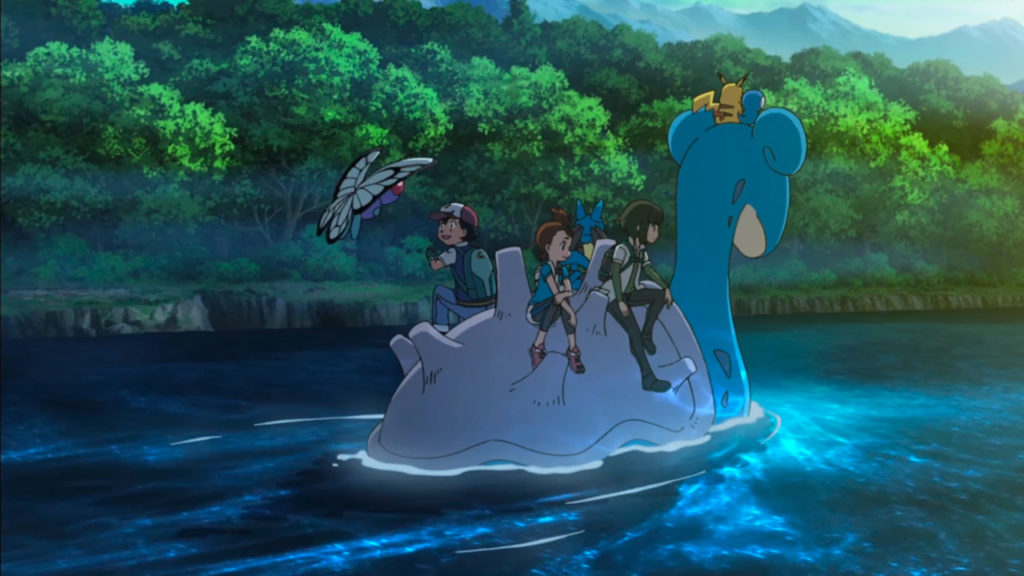
Indeed, Ash and his friends exist in a bright, colorful world, full of optimism and teaming with life. From the sparkling rivers and vibrant green plains to the breathtaking mountain vistas and oversized metropolises, the setting is certainly impressive, and the Pokémon who inhabit them are equally numerous and varied. Viewers will see old standbys like Charmander, Onyx, and Caterpie, as well as newer ones like Lucario, Luxray, and Incineroar. In fact, there are more than a few shots whose only purpose is to show off how many of these creatures exist in this fun and playful world. It is of no surprise then that I got goosebumps when the Pokémon theme started playing over a montage of Ash and Pikachu traveling across these sweeping vistas. It wasn’t just the childhood nostalgia talking; it was that pure, unadulterated sense of adventure.
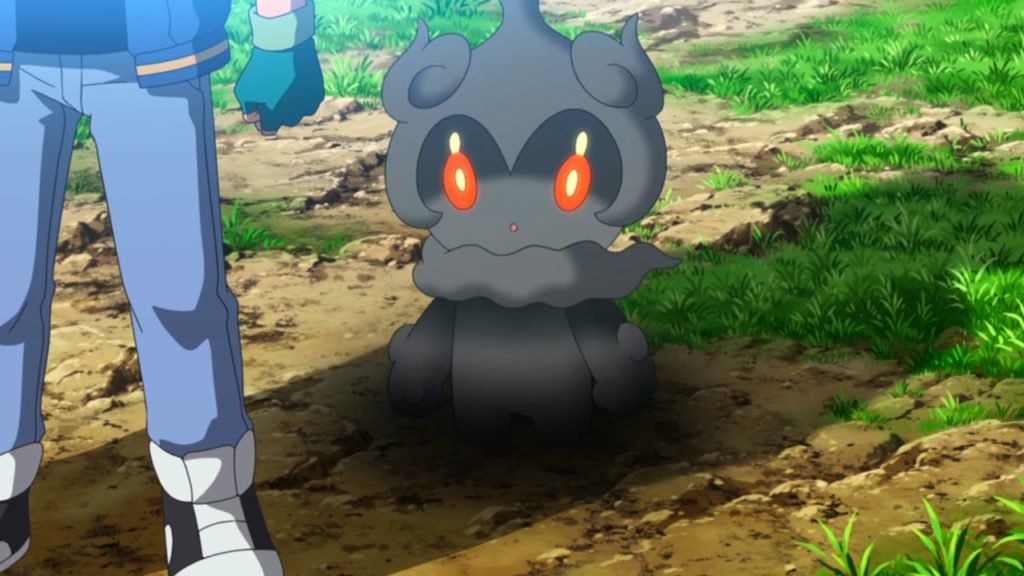
The rest of the soundtrack is less than thrilling, though. Series composer Shinji Miyazaki returns with music that fits the action well and isn’t intrusive, but it can be a little forgettable. Likewise, the English voice cast is the same as the current television series. Admittedly, it has been over a decade since I last watched the show, and I immediately noticed the change in voice actors. However, the new actors do a good job for the most part, and I was able to focus on what they were saying versus how the person sounded. The only exception was James and Meowth’s voices, which I didn’t like at all, but maybe I just need to spend more time listening to them.
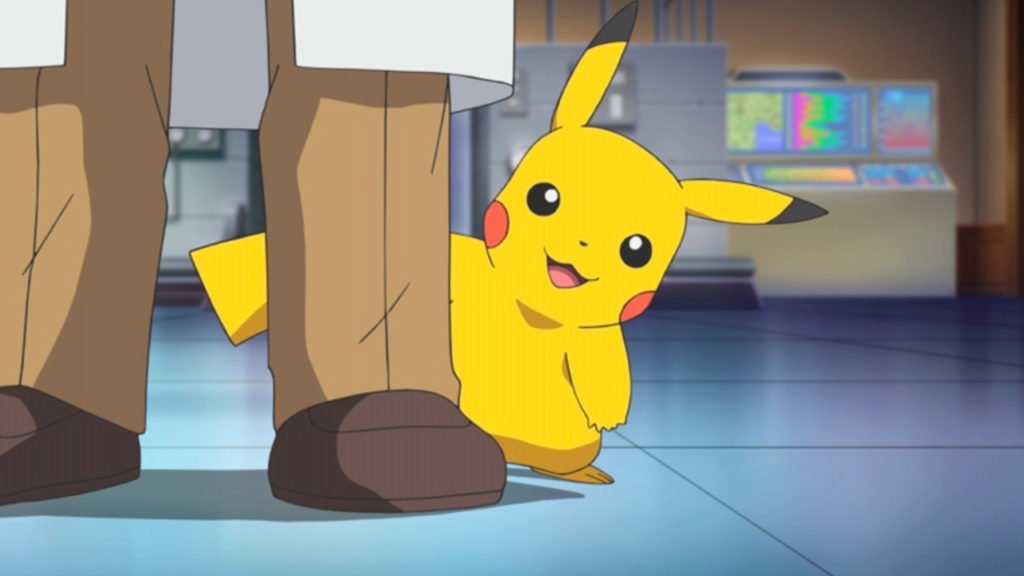
I would also be remiss if I didn’t mention the so-called controversy surrounding Pikachu and the fact that it speaks an actual line of human dialog, as opposed to the normal recitation of its name. I might be in the minority, but I am fine with this. It makes sense within the context of the story number one, and number two, there is precedence in the series for Pokémon speaking the language of humans. Besides, Ash and Pikachu have “talked” for as long as I can remember, so this single utterance does not bother me.
Overall, Pokémon the Movie: I Choose You! is a solid film that does a good job of celebrating twenty years of Pokémon in anime, and after watching it, I am inspired to go back and watch the other movies that I missed. In the meantime, here’s to another twenty years of Pokémon!
